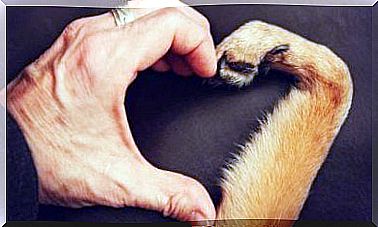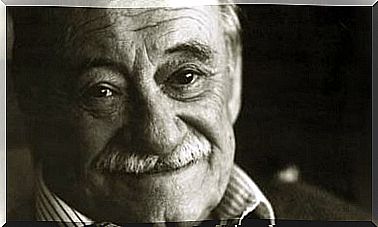Let’s Pretend We Are, And We’ll End Up Being

Let’s pretend all the good things we crave are already here, before we even actually manage to achieve them. Let’s pretend we are already happy so that our emotions will convince us. To believe every day with firmness and conviction that one deserves what one desires is not an act of selfishness, no; it is the first step towards personal development.
Let’s think about this for a moment: if we ourselves don’t convince ourselves that we can and should get out of depression, an unhappy relationship or a job that violates our rights , no one else will do it for us. The real hero who has allowed you to come out on multiple occasions from these black holes where you have seen yourself immersed in your life is you, and the way you have succeeding in doing so undoubtedly requires an iron will and a way of thinking which clearly had its objective.
In fact, it is very common to see works, books and interesting publications where we encourage ourselves to become the CEO (acronym for Chief Executive Officer, or executive director, in French) of our own. brain. What we are trying to do first and foremost is to bring to the table this need for everyone to understand how the brain works in order to have more control over its processes.
In fact, if there is something that everyone has known for a long time, it is that the human being is a complex entity guided and dominated by his emotions. It is they who build us, who guide us, who intoxicate us with dopamine, serotonin and oxytocin, and it is they who throw us, sometimes, in this chemical shipwreck which suffocates us in these permanent states of sadness and lack of defense.
However, sometimes it is also necessary to rise as the executive director of our brain to take control and guide us towards change: towards well-being. We explain how to get there in the rest of this article.
Overcoming the negativity bias of our brain to foment positive neuroplasticity is not easy. It is not in the first place because most of us have as our brain’s “executive director” a person dependent on the practice of self-criticism, and this can sometimes have an influence on our brain. the same ideas and other limiting attitudes, like a little hamster spinning its wheel.
Most experts in human behavior call this common practice “the logic of the child”. That is to say, these are moments that, quite simply, we allow our negative emotions to be sequestered until reaching an extreme of absolute immaturity. To better understand this, let’s think about a simple example: at work, we made a mistake, which in turn led other people to suffer the consequences of this negligence.
Sometimes in our minds the phrase “ I am an idiot, I am not worth this” constantly echoes . In turn, the brain intensifies this state even more by reminding us of past mistakes, or even of all the times, in our country, we were able to tell us how “stupid” we were.
Your emotions have pushed you into this hamster wheel where the negative sensation intensifies until you block you, until you submit to a state of complete defenselessness. Instead of telling yourself “I made a mistake, I will learn from it and tomorrow I will do better” , you have chosen to call yourself “an idiot” .

This type of negativity bias that characterizes us in various moments of our life are guided by very concrete processes: it is our moods that assume all the control.
However, to become a true executive director of our brain, we must take the reins of these mental processes as if we were true leaders, and not mere subordinates who allow themselves to be humiliated.
Neuroscience brings within our grasp the possibility of understanding why, sometimes, we let ourselves be so carried away by these negative emotions. An overactive tonsil, for example, also likes to sometimes push us into the clutches of fear. In fact, according to recent studies conducted by Harvard University, the brain, still linked to our motor activity, could also be linked to our emotional regulation.
As we can see, our brain is an entity where emotions have power, and from which mental processes often arise. To assume a passive attitude in these cases supposes to foment a personal abandonment and a clear incapacity to be responsible for our own happiness.
In the rest of this article, let’s see how it is possible to start fomenting positive and useful neuroplasticity that will serve us to achieve our goals.

Think as if we were happy and end up being so. Is this a fantasy, the figment of our imagination out of a cheap self-help manual? Actually no, this sentence contains deep internal mechanisms on which one must reflect through four simple questions.
- “Am I really?” : Whenever you tell yourself that you are stupid, that you do not deserve to be loved, that you are a failure, or that you do not have the skills to achieve this dream, ask you if that’s true. To have full control over our thoughts, nothing better than saying to ourselves the following thing: “I am not stupid, but I AM able to overcome myself and BE a person who deserves it.”
- “Who or what is preventing me from achieving what I want?” : when we ask ourselves this question, we must be completely sincere. Most of the time, we are solely responsible because of our limiting attitudes.
- “What kind of emotion am I feeling?”
- “Does this earlier emotion help me achieve what I desire?”
These last two questions are linked; if what I feel throughout the day is fear and insecurity, it remains quite clear that I am not going to come out of the black hole I am in. However, if I try to convince myself that I am strong, capable and deserving of achieving what I desire with firm thoughts, day in and day out, the second chance door will open to you. me.
Images of Akira Kusava








